These powerful reads deliver an essential examination of crime and punishment in America.
Eye-Opening Books About the American Criminal Justice System
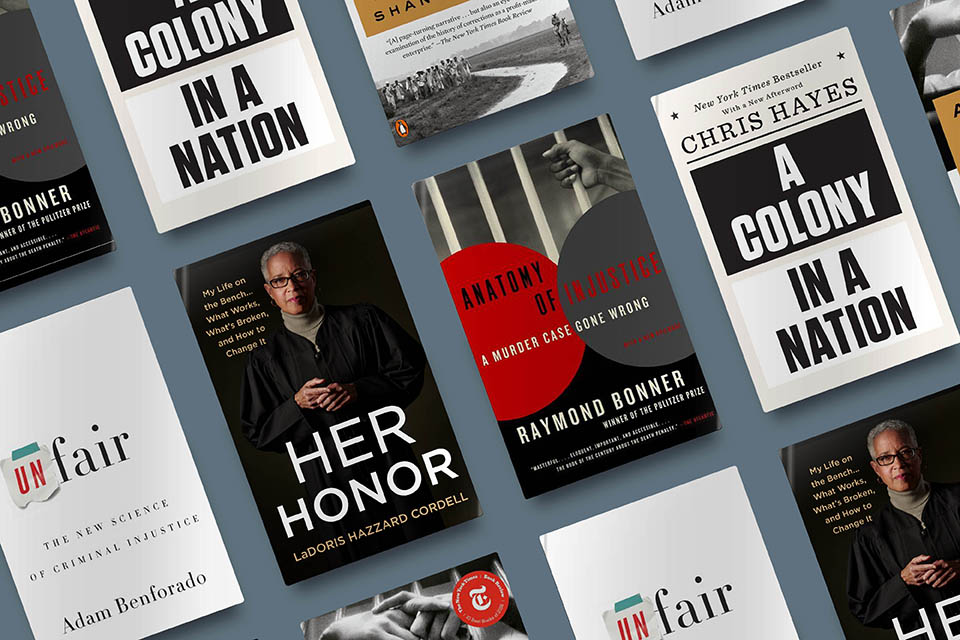
The following books offer an unflinching look at America’s criminal justice system – flaws and all – and propose a range of reforms to help rebalance the scales.
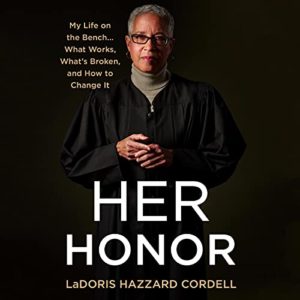
Her Honor
By LaDoris Hazzard Cordell
Judge LaDoris Hazzard Cordell was the first African American woman to sit on the Superior Court of Northern California. She knows firsthand that biases and failings pervade our legal system, and in her riveting new memoir, she shows us how to enact real change. Cordell draws on a lifetime of judicial experience to offer an insider’s look at the legal battles and human dramas that have unfolded in her courtroom, from her clashes with prosecutors and the tough decisions judges must make to the prejudices that plague legal proceedings and the worrying shift from rehabilitation to punishment. Cordell is clear in her view that American justice often fails to live up to its own standards. Nevertheless, she believes in the crucial role it plays in our democracy, and in her book, she highlights the steps we can take to make an imperfect system more equitable for all.
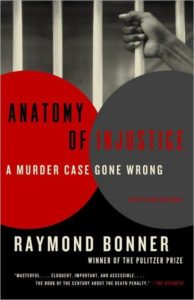
Anatomy of Injustice
By Raymond Bonner
Few juridical incidents are as distressing as a wrongful conviction or a miscarriage of justice. And yet, this was a harsh reality for Edward Lee Elmore, a soft-spoken, semiliterate Black man from South Carolina who spent over half of his life behind bars after an unjust trial led to his incarceration for murder. In this powerful work, Pulitzer Prize-winning journalist Raymond Bonner profiles Diana Holt, the determined young attorney who learned of Elmore’s plight and decided to act. Soon after opening Elmore’s case, Holt realized it was riddled with faults, from subpar defenders and shoddy police work to falsified evidence. She spent over a decade fighting for Elmore’s freedom before he was finally released. Bronner vividly chronicles Holt’s battle for Elmore’s life and her pursuit of the truth, revealing the entrenched inequalities that undermine due process.
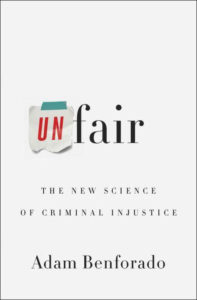
Unfair: The New Science of Criminal Injustice
By Adam Benforado
In his “important, deeply researched debut” (Kirkus, starred review), Adam Benforado digs deep into the U.S. criminal justice system to reveal the role our hidden biases play in furthering injustice. Benforado draws on real-life court cases and a wealth of scientific research to illustrate how prejudices at the individual level perpetuate legal dysfunction and social inequality – whether it’s our reaction to the number of photos in a mugshot book, the words used in cross-examination, or even the camera angle of a defendant’s taped confession. As human frailty and faulty procedures undercut the due process of law, powerful forces within the system find ways to exploit these weaknesses. And yet Unfair isn’t solely a damning chronicle of criminal injustice: Benforado proposes an array of solutions to help restore justice.
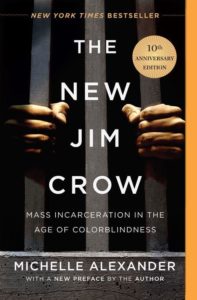
The New Jim Crow
By Michelle Alexander
Michelle Alexander’s groundbreaking narrative lays bare the role that racism and structural inequality play in our age of mass incarceration. Alexander argues that the racist structures of the criminal justice system perpetuate America’s Jim Crow laws; we haven’t eliminated the country’s “racial caste,” she says, we merely redesigned it. Provocative and galvanizing in equal measure, The New Jim Crow inspired a new generation of criminal justice reform advocates, imploring each and every one of us to take a hard look at ourselves and the system that’s supposed to represent us all.
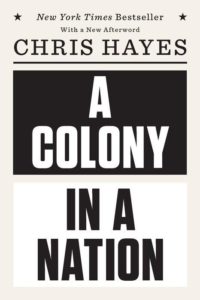
A Colony in a Nation
By Chris Hayes
In this bestseller, MSNBC anchor Chris Hayes argues that America’s criminal justice system operates differently depending on who you are and where you live. While that might not come as a shock to anyone who watches the nightly news, Hayes’s perceptive analysis of America’s fractured identity – what he sees as a Colony within a Nation – puts this divide into stark contrast. Citizens of the Nation revere the legal system and see police as agents of justice; those in the Colony view the law as a punishing method of fear and domination. With compassion and insight, Hayes strives to understand this disparity and seeks out ways to repair the fractured criminal justice system.
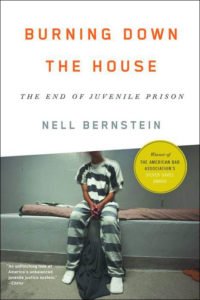
Burning Down the House: The End of Juvenile Prison
By Nell Bernstein
In this acclaimed narrative, award-winning journalist Nell Bernstein delivers a harrowing account of America's juvenile justice system “that lays bare our nation’s brutal and counterproductive juvenile prisons” (San Francisco Chronicle). Bernstein gives a voice to the young people who are locked up in detention centers across the country, letting them tell their stories of isolation, abuse, and the struggle to preserve their humanity in a dehumanized environment. The accounts are both heartbreaking and enraging; indeed, Bernstein argues that locking up children is itself a futile act that prevents rehabilitation. Bernstein backs up her case with clear proposals for change and alternative programs to juvenile imprisonment.
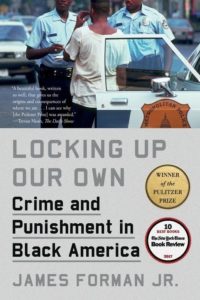
Locking Up Our Own
By James Forman, Jr.
In this Pulitzer Prize-winning book, James Forman, Jr. examines the crackdown on urban crime in the 1970s through the ’90s and the many Black leaders in America who felt compelled to take a tough-on-crime stance. Forman, a Yale law professor and former public defender, looks to the hardline policies adopted by African American public officials, community organizers, lawyers, and law enforcement officers in response to rising crime rates in our nation’s urban centers – policies that have had a devastating and long-lasting impact on communities of color. Backed by extensive research and firsthand knowledge of the law, Forman’s nuanced account expertly traces the complexities of race and criminal justice in America, elevating our understanding of mass incarceration and showing us how we can begin to undo the damage.
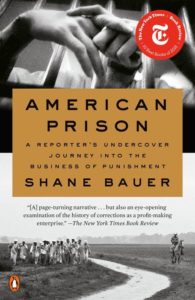
American Prison
By Shane Bauer
In this award-winning exposé, investigative reporter Shane Bauer goes undercover as a guard at Louisiana’s Winn Correctional Center to deliver an “enraging, necessary look at the private prison system and a convincing clarion call for prison reform” (NPR). Bauer weaves together on-the-ground accounts of systemic dysfunction and abuse with a sweeping history of America’s for-profit prisons from slavery to the present day. The result is a staggering portrait of a money-driven carceral system that is rife with inequity and ripe for change.
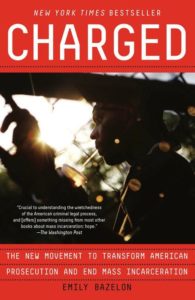
Charged: The New Movement to Transform American Prosecution and End Mass Incarceration
By Emily Bazelon
In this New York Times bestseller, Emily Bazelon probes the outsized power of prosecutors in the U.S. criminal justice system and the level of discretion they have in the cases they pursue. Bazelon uses the true stories of two young defendants to illustrate both the complexity and inequity of the system, putting a face to the issue. She also traces the history of prosecution in America to help us better understand how we ended up in our present-day predicament. Bazelon’s first-person reporting and extensive research exposes the brute legal force behind America’s overincarceration crisis and shows us the steps being taken to restore the balance.
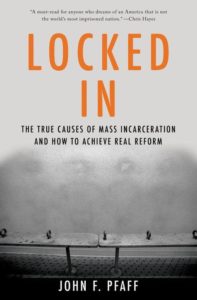
Locked In
By John Pfaff
John Pfaff, a professor at Fordham University of Law, has dedicated his life to the study of law and criminal justice reform. In this thoroughly researched work, he urges us to look beyond the commonly held explanations for mass incarceration in America to what he sees as the underlying sources – in particular, an alarming pattern in prosecutorial conduct that shows prosecutors bringing felony charges at nearly twice the rate they had done before. Pfaff skillfully examines America’s criminal justice system, follows its flaws back to the source, and proposes paths to get us on track to a more just society.
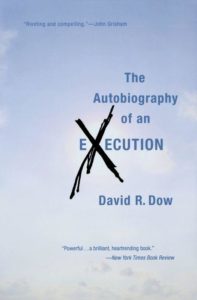
Autobiography of an Execution
By David Dow
David R. Dow is a lawyer, professor, and the founder of the Texas Innocence Network. He’s represented over 100 death row inmates during state and federal appeals. In this searing memoir, which was a finalist for the National Book Critics Circle Award, Dow details the rigors of his life’s work and his steadfast commitment to defending prisoners against execution. Dow is candid about the human cost of capital punishment, charting the physical and emotional toll taken on families, lawyers, and the inmates themselves. He’s also upfront about the deep moral challenges of his efforts; some of his clients are shown to be innocent, while many others are guilty of committing monstrous crimes. Weaving together accounts of real-life capital cases with personal tales of his family life, Dow’s narrative "is a sobering, gripping and candid look into the death penalty" (Publishers Weekly).
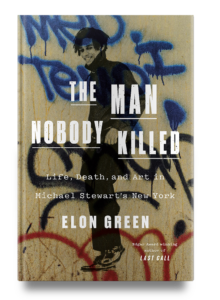
The Man Nobody Killed
By Elon Green
In The Man Nobody Killed, Edgar Award–winning author Elon Green delivers a compelling narrative that examines the tragic death of Michael Stewart, a young Black artist whose fatal encounter with New York City Transit Authority police in 1983 became a pivotal moment in the fight against police brutality. Green meticulously chronicles Stewart’s life, the circumstances surrounding his death, and the ensuing legal battles, highlighting the systemic injustices within the American criminal justice system. This poignant account not only sheds light on a harrowing miscarriage of justice but also underscores the enduring struggle for accountability and reform.
Share with your friends
Related Articles
Celadon delivered
Subscribe to get articles about writing, adding to your TBR pile, and simply content we feel is worth sharing. And yes, also sign up to be the first to hear about giveaways, our acquisitions, and exclusives!
Celadon delivered
"*" indicates required fields

